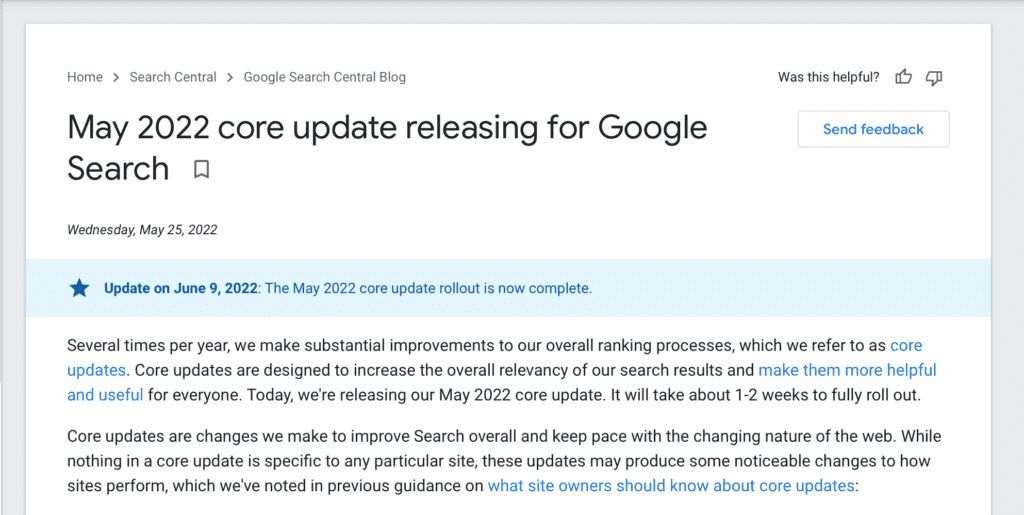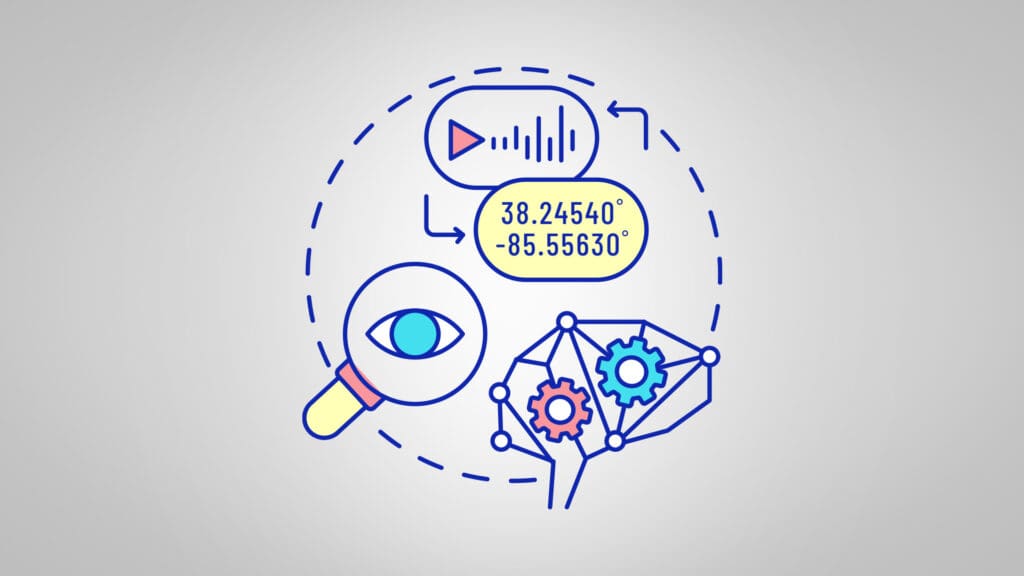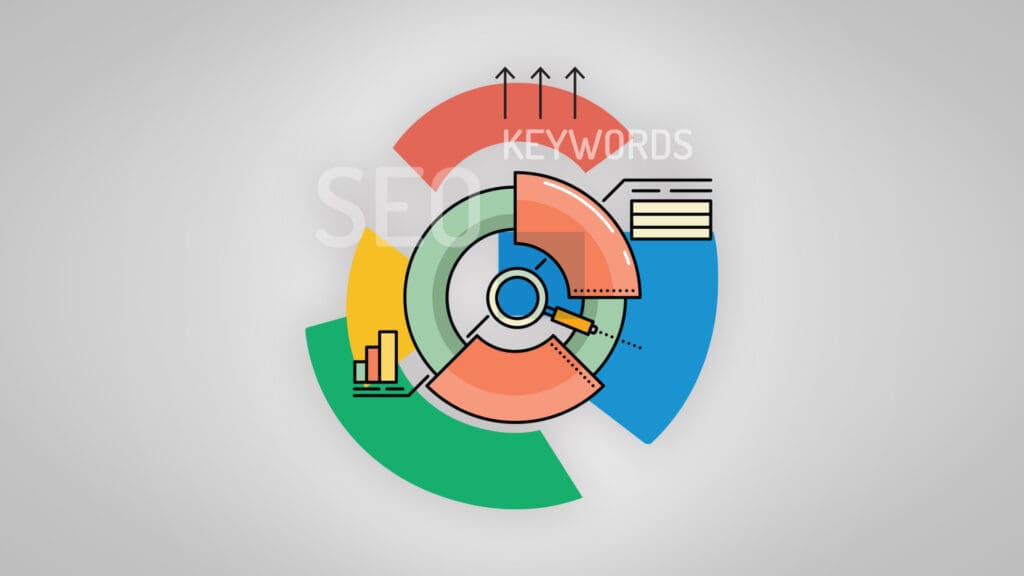
SEO and Google Algorithm Updates: Your Questions Answered
Good SEO has always provided the best bang for your buck in LeadGen. As SEO becomes increasingly more sophisticated and users demand better and faster answers to their queries, Google has a difficult job uncovering high-quality content and promoting the most relevant results for a user’s intent.
Continuing our discussion of The Evolution of Modern Organic Search and moving closer to the current search state, Google must calculate a fair balance between expertise, brand authority, and trustworthiness. Equally important is how SEO can be proactive or reactive to algorithm updates.
This edition of Plain Talk will highlight questions regarding SEO and Google algorithm updates and how the right strategy can minimize impact.
- Why Does Google Update Its Algorithms?
- Does Google Always Announce a Planned Algorithm Update?
- What is the Best Way to Monitor Fluctuations That Result From Algorithm Changes?
- What Should be Done if a Google Algorithm Impacts Website Traffic?
- What Can We Learn From Google Algorithms?
- Get Expert Help With SEO and Google Algorithm Updates
Why Does Google Update its Algorithms?
On average, Google updates its algorithm nearly nine times a day. These updates to the algorithm change the way that Google ranks websites in search results. Some algorithm updates are minor enough to go unnoticed, and some are impactful enough to cause immediate fluctuations in website rankings.
You may be wondering why Google updates its algorithm so frequently. The answer is simple: to ensure the most accurate search results for users. As strong SEO minds study these fluctuations and adjust accordingly to game the system, Google is also adjusting. An SEO practitioner aims to optimize their product, company, or client results. Google’s goal is to optimize the results for the user. While these conflicting goals don’t always mesh, the net result over time is that Google gets better and better for the user with every iteration through the cat and mouse game.
So, while most small daily updates to the algorithm are not noticeable, they incrementally improve search results and user experience over time.
Should there be a concern when Google announces a scheduled update?
The simple answer is yes! Google is constantly making small adjustments to its algorithms. Google does not announce every update because the smaller updates generally go unnoticed and thus are not cause for concern. However, some changes are more impactful. These updates are called broad core algorithm updates. Google always announces core updates because they often produce more widely noticeable effects, and you should be very concerned. They are designed to reward search results that provide more relevant results and/or a better user experience for the user. Generally, previous adjustments you made for search gains that do not beneficially affect the user’s experience or search results are discounted or even penalized.
How is a core update different from other updates?
While smaller Google algorithm updates happen daily, a major algorithm update has a much more noticeable impact on search results. Core updates result in more significant changes to the way websites rank and display on the search engine results page. Because of this, they typically only happen a couple of times a year. However, they enrage SEO technicians who must fuel sleepless nights with Mountain Dew Code Red.
A broad core algorithm update can impact various websites, regardless of their industry or platform. A Google update may affect a company’s search rankings for better or worse. However, Google tests every broad core update before it goes live, including gathering feedback from quality raters, ensuring that the algorithm update will prove beneficial. Overall, Google algorithm updates ensure that Google searches present relevant and accurate search results to users.
What should be done to prepare for a Google algorithm update?
Google offers advanced notice for a core update. This allows site owners and web developers plenty of time to prepare. Often, Google will even offer advice for actionable improvements to improve performance during a broad core update.
In May 2022, Google announced that it would be launching a broad core algorithm update. It pointed to the advice they published during the 2019 broad core update. Google’s general advice regarding broad core algorithm updates included:
- Core updates are “broad” in the sense that they do not target anything specific and are simply designed to improve Google’s systems.
- Widely noticeable changes like spikes or drops in search rankings are to be expected.
- Providing the best content possible is the recommended way to handle the impact of a broad core algorithm update.
- Web pages that happen to drop in rankings are not being punished. They are being reassessed next to new web content published since the previous update.
- Broad core updates happen every few months, and some sites might not recover from one update until the next one rolls out.
- Improvements do not guarantee recovery but choosing not to implement any improvements will virtually guarantee no recovery.

SEO strategy
Many companies rely on SEO strategy to guide their response when Google rolls out a core update. Regardless of if you have someone in the SEO community on your side, Google confirmed that it is common for sites to experience both gains and drops during a large search ranking algorithm update.
It goes without saying that sites experiencing a drop in their search ranking will be eager to resolve the problem. Google often offers information on how to navigate a broad core update. This ensures that site owners know what to fix—if anything at all.
Does Google Always Announce a Planned Algorithm Update?
No, Google updates its algorithm 1000s of times a year. Not every algorithm update will be announced. Google reported over 3,000 updates to the search algorithm in 2018. This was over eight times the number of updates google rolled out in 2009. This brings the average number of Google algorithm updates up to almost 9 per day.
What is the Best Way to Monitor Fluctuations That Result from Algorithm Changes?
The best way to ensure that any content ranks high in Google search results is through search engine optimization (SEO). SEO is dependent on Google’s algorithm and ever-changing search index. Therefore, SEO strategies must change along with algorithm updates to maintain search rankings.
Search engine optimization is a never-ending task that requires knowledge, research, and implementation. SEO professionals who want to create optimized content must work to thoroughly understand the rules of Google’s algorithm by consistently monitoring and evaluating changes. Changes in the algorithm can feel like a setback. However, algorithm updates are Google’s way of rewarding websites for relevant content and a good user experience.
Monitoring fluctuations in the Google algorithm
One of the easiest ways to monitor fluctuations in the algorithm is to set up notifications via www.google.com/alerts/. Google Alerts can be customized based on topic, source, phrase, frequency, and quality. Once the alert is set up, no further action is necessary on your part. Google news will come straight to you.
Review of Google Analytics trends
Google Analytics (GA) is one of the advanced tracking tools made by Google that allows you to monitor and analyze your site visitors in real-time. Using this data, GA creates detailed reports about your website audience. Google Analytics keeps track of your website traffic as well as other metrics.
Monitoring trends is a pivotal part of understanding any marketing data platform. Fortunately, Google provides data tracking tools to help users collect and analyze data. Data trend analysis involves looking for patterns in your Google Analytics data over time. Regularly evaluating GA data helps you to more clearly understand trends, like search queries, by showing you data on what time of day or day of the week people tend to search for your business the most.
Tracking these trends can help you get a feel for when normal fluctuations may happen. Knowing what your normal GA data looks like will help you spot larger website traffic changes and alert you to potential changes in Google’s algorithm.
It goes without saying that algorithm changes affect how high your web pages rank in search engine results pages and your business as a whole. A major algorithm update can impact search traffic, visibility, conversions, revenue, and returns on investment (ROI). Understanding Google tools like Google Analytics help you to make necessary adjustments in real-time.
Review of Google Search Console data
Google Search Console (GSC) is another one of the tools that can help improve your performance on Google Search. GSC allows you to see which search queries bring users to your site, analyze impressions, track clicks, and see your position on Google Search.
The platform also sends email alerts when it identifies an issue on any of your web pages, allowing you to identify which URLs are affected and report when they’ve been fixed.
Additionally, the URL inspection tool on GSC shows how Google Search sees your web pages by providing detailed information directly from the Google search index.
Software analysis
Semrush
Semrush is a platform for online ranking data and keyword research. It reports on metrics like search volume and cost per click and provides information about keywords for search engines like Google. Semrush allows users to quickly identify changes in key organic and paid traffic metrics and track the authority score of their domains and their competitors’ domains.
Ahrefs
Ahrefs claims to be an “all-in-one SEO toolset.” This software helps users audit and optimize their site, analyze competitors, find the keywords their customers are searching for, learn from top-performing content creators in their industry, and track their ranking progress.
BrightLocal RankFlux (global vs. vertical)
Local RankFlux is a free SEO tool that tracks daily changes in Google’s local rankings. It helps marketers identify whether a local algorithm update could be taking place. Rankflux tracks over 14,000 locally focused keywords across 20 locations within the USA to identify any out-of-the-ordinary fluctuations within Google local finder rankings.
Local RankFlux determines the ranking change of each business in the top 20 search results each and every day and compares their previous day’s ranking with their new position. To calculate an overall daily score, a weighting system is applied to each ranking position. The ranking systems match the perceived importance and rank value of positions in Google’s local search results.
Moz
Moz is another SEO tool that tracks ranking, does keyword research, reports on analytics, and optimizes content. Moz’s site crawler feature digs through your site to find technical issues Then, it shows you how to fix them to improve your ranking.
What Should be Done if a Google Algorithm Impacts Website Traffic?
Google algorithm updates impact your web page by changing your ranking depending on if you are playing by the rules of the new algorithm. If you are providing web users with a good experience and following Google’s advice on how to handle the algorithm update, you will rank high in Google results. It is important to consider what additional Google properties were impacted by the algorithm update and if they affect local, regional, or global website traffic.
Positive impact
Higher rankings bring more web traffic and, in turn, more sales and higher profit. While there are many factors that play into search engine rankings, one of the main factors appears to be the click-through rate of web pages.
Negative impact
If you have been negatively impacted by a new google algorithm update, do not fear, you can recover. However, it won’t happen overnight. It can take time to increase and maintain your rankings. Don’t lose heart; it’s possible to adjust your strategy and improve your web pages again. Say if you had a page that previously did well but dropped off the rankings for certain keywords on a recent algorithm update. You could improve your rankings by focusing on re-optimizing your headings and meta descriptions on those pages.
Additionally, using an SEO tool like the ones we discussed above can help you identify the issue and determine what pages need to be fixed.
What Can We Learn from Google Algorithms?
Google’s complex algorithm system retrieves data from pages and seeks to understand what searchers are looking for. It then ranks pages according to relevance and quality.
Understanding and utilizing Google algorithms can benefit your business tremendously. If you are trying to improve your understanding of Google algorithms, ask yourself these questions:
- What additional search results features are new to your SERPs landscape, and how can you leverage those features for additional traffic, conversion, and authority in your vertical?
- What areas of keyword and page rankings have changed that were very hard to rank and have increased in rankings after 2 to 3 months post algorithm update?
- Can those long-term learnings provide direction to net new content and opportunities to tune existing content?
One thing is certain: Google is getting more complex and intentional about what websites are high authority and relevant to their customers. So, interpretation of data post-algorithm update is instrumental in new customer acquisition, recurring conversion opportunities, and overall visibility within your topical category.
Get Expert Help With SEO and Google Algorithm Updates
If you have questions about Google, their algorithm changes (Code Red Core, or just daily variety), the tools and strategies necessary to stay on top, or if you feel your company needs an SEO audit, we’d love to chat. Drop us a note or call us at 502-499-4209. Like what you read today? If you’re not already a subscriber to our Plain Talk newsletter, you can subscribe below.
Our Articles Delivered
Signup to receive our latest articles right in your inbox.




